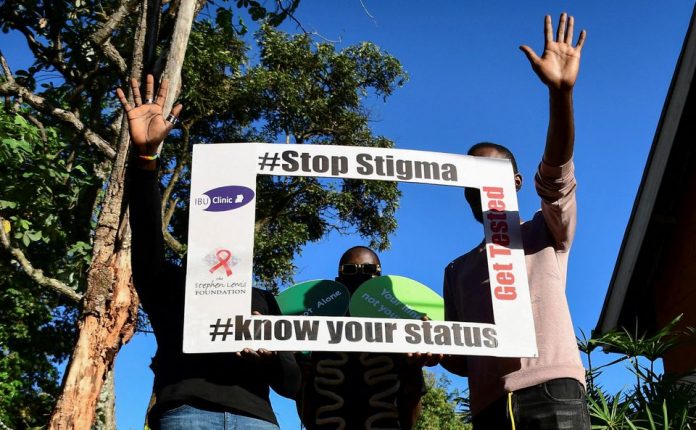The HIV/AIDS treatment centre in Kampala is almost empty, days after Uganda enacted one of the most draconian anti-gay laws on Earth.

The usual daily influx of around 50 patients has all but dried up, say staff. Antiretroviral drugs pile up unused.
Andrew Tendo, resident medical officer at the US-funded clinic, warned that new waves of HIV infections were forming even as vulnerable people stayed away from treatment centres, afraid of being identified and arrested under the new laws.
“The LGBT community in Uganda is on lockdown now,” he said. “They don’t have preventive services. They cannot access condoms … they cannot access ARTs (antiretrovirals).”
Under the bill, which President Yoweri Museveni signed into law last week, gay sex is punishable by life in prison while “aggravated homosexuality” – which includes transmitting HIV – is punishable by death.
Until this year, the Kampala clinic had been a beacon of success for the fight against HIV in Uganda, where 1.4 million people live with the virus and 17,000 die a year as a result of its ravages, according to the state-run Uganda AIDS Commission.
Now, though, when patients do come in, it’s often out of absolute necessity, said Tendo, adding that the HIV cases presenting had become more severe as people skipped treatments.
Uganda’s health minister disputed a suggestion from a US official that the law would reverse the country’s gains fighting HIV/AIDS, saying last week that the government would ensure that prevention programmes would remain accessible to those that needed them.
The health ministry declined to comment for this article.
Nonetheless, the trend of HIV patients staying away from treatment centres is being mirrored on a national level, according to Mary Borgman, country director for the US President’s Emergency Plan for AIDS Relief (PEPFAR), which funds the Kampala clinic and about 80 other drop-in centres across Uganda.
She said fear had increasingly been deterring people from coming in for treatment ever since the anti-gay bill was introduced in parliament in March.
























































![[FREE FREE MONEY] Predict and Win a Guaranteed GH¢200 From Us EVERY WEEK](https://wordpress.ghanatalksradio.com/wp-content/uploads/2022/02/Predict-and-Win-Final-09-03-2021-218x150.jpg)
![[Predict & Win – 8th/Oct.] WIN A Guaranteed ¢200 From Us This Week](https://wordpress.ghanatalksradio.com/wp-content/uploads/2021/10/maxresdefault-16-218x150.jpg)
![[Predict & Win – 2nd] WIN A Guaranteed ¢200 From Us This Week](https://wordpress.ghanatalksradio.com/wp-content/uploads/2021/09/maxresdefault-50-218x150.jpg)
![[Predict & Win – 25th] WIN A Guaranteed ¢200 From Us This Week](https://wordpress.ghanatalksradio.com/wp-content/uploads/2021/09/maxresdefault-36-218x150.jpg)
![[Predict & Win – 18th] WIN A Guaranteed ¢200 From Us This Week](https://wordpress.ghanatalksradio.com/wp-content/uploads/2021/09/maxresdefault-23-218x150.jpg)









![[National cathedral] See full list of churches that have contributed since 2018](https://wordpress.ghanatalksradio.com/wp-content/uploads/2020/09/Ghana-National-Cathedral-GhanaTalksRadio-100x70.jpg)



